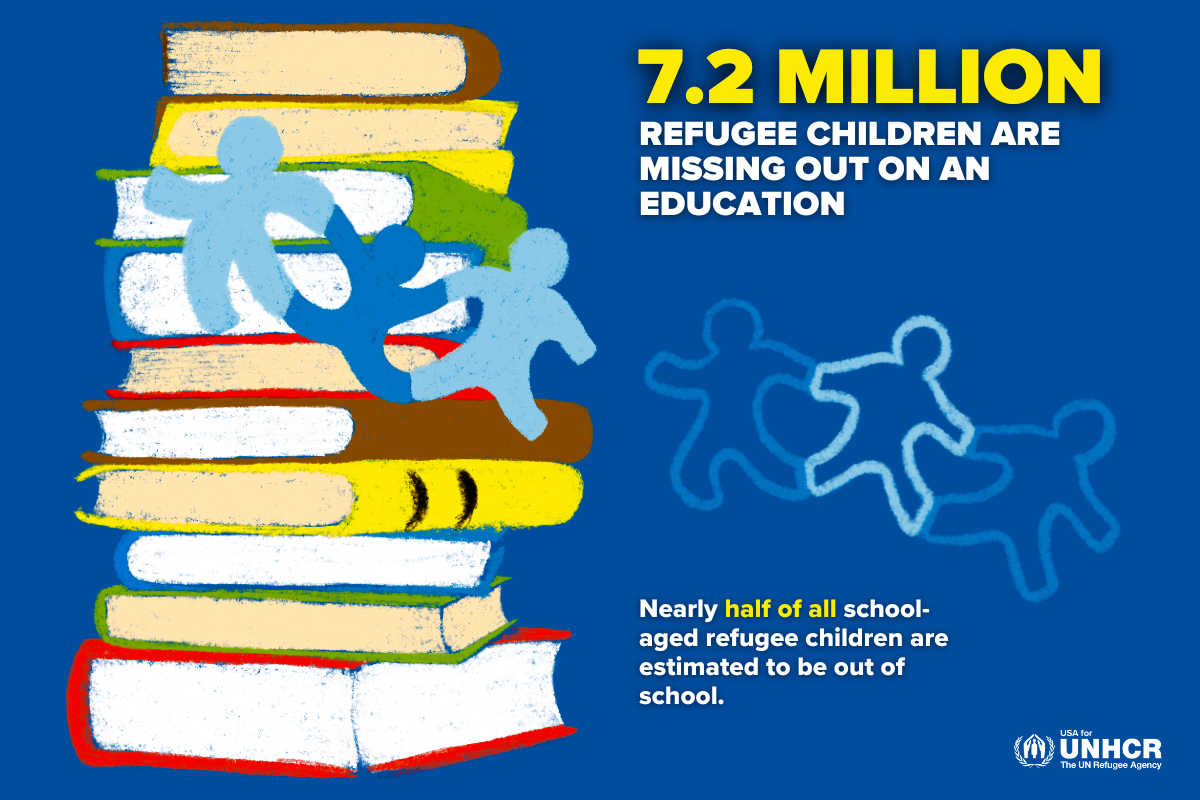What to know about Ramadan and how refugees celebrate
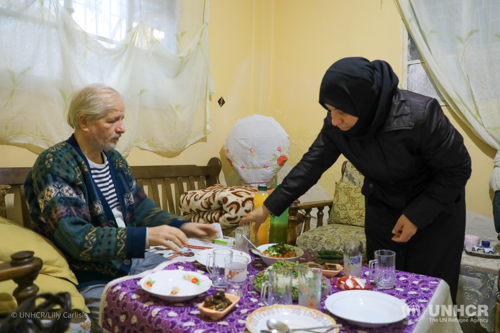
Every year, millions of refugees observe Ramadan surrounded by conflict and hardship. For those uprooted from their homes, celebrating during the holy month can be a tragic reminder of everything they have lost.
Ayman, a Syrian refugee living in Jordan, recalls the community spirit that occurred during Ramadan in Syria. In Amman, it is just him and his wife Ghalia. “Now my wife and I sit and contemplate. We are upset. We sometimes just stare at each other asking why this happened.”
With support from UNHCR, the UN Refugee Agency, more refugees like Ayman and Ghalia are receiving the shelter, food, water and cash assistance they need to survive.
Ramadan is a time when people come together to show kindness and solidarity. Learn more about this holy month and how Muslims around the world will be celebrating and helping refugees.
Here's What You Need to Know:
4. What is Zakat and why do Muslims give during Ramadan?
5. Are refugees celebrating Ramadan?
What is Ramadan?
Ramadan is the most sacred time of the year for Muslims. During Ramadan, Muslims fast every day from dawn to sunset. It is a deeply spiritual time — of contemplation of one's relationship with God, extra prayer, increased charity and generosity, and intense study of the Quran.
Ramadan is also a very social month centered on the home where families and friends come together to share laughter, food, joy and give back to their communities and those less fortunate.
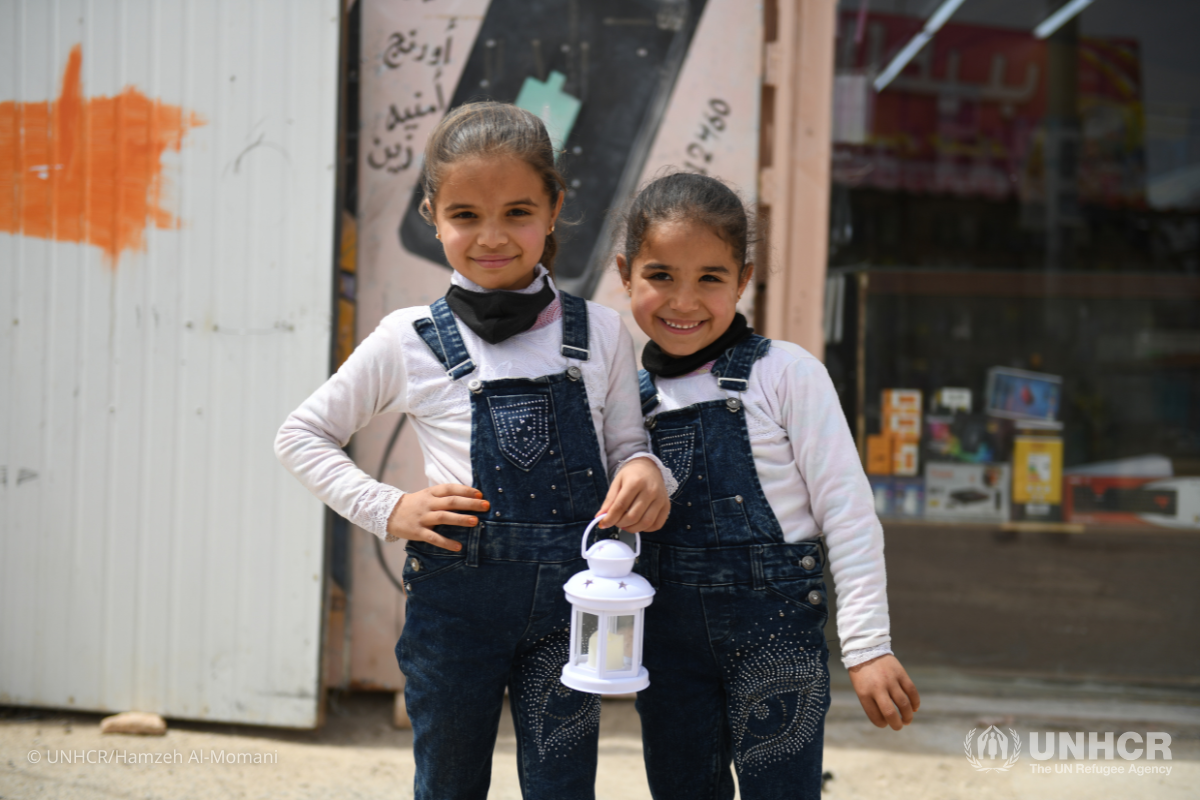
When is Ramadan?
This year, the holy month of Ramadan begins on Sunday, March 10 and is celebrated by approximately 2 billion Muslims around the world. Islam is the third largest religion in the United States – more than 3.45 million Muslims will be celebrating during Ramadan.
Ramadan is celebrated in the ninth month of the Islamic calendar, when it is believed the Quran was first revealed.
In 2024, Ramadan begins on the evening of Sunday, March 10 and lasts 30 days, ending at sundown on Tuesday, April 9. Ramadan closes with the celebration called Eid al-Fitr -- the Festival of the Breaking of the Fast.
How is Ramadan celebrated?
Ramadan is the most important celebration for Muslims. During the observance, Muslims are called to adhere more closely to Islamic teaching. A few ways Muslims celebrate Ramadan are:
- Prayer: Pray, visit mosques and read verses of the Quran (some people read the whole Quran from cover to cover during this month).
- Fasting: During the daylight hours of Ramadan, all healthy adult Muslims are required to abstain from food and drink.
- Sahur (pre-dawn meal): Wake up early for “Sahur” to eat a power meal before fasting begins.
- Iftar: The breaking of the fast at sundown – typically by gathering with family, friends and neighbors for large feasts.
- Charity: Give money, food and time to people in need, including refugees and those displaced by war and persecution.
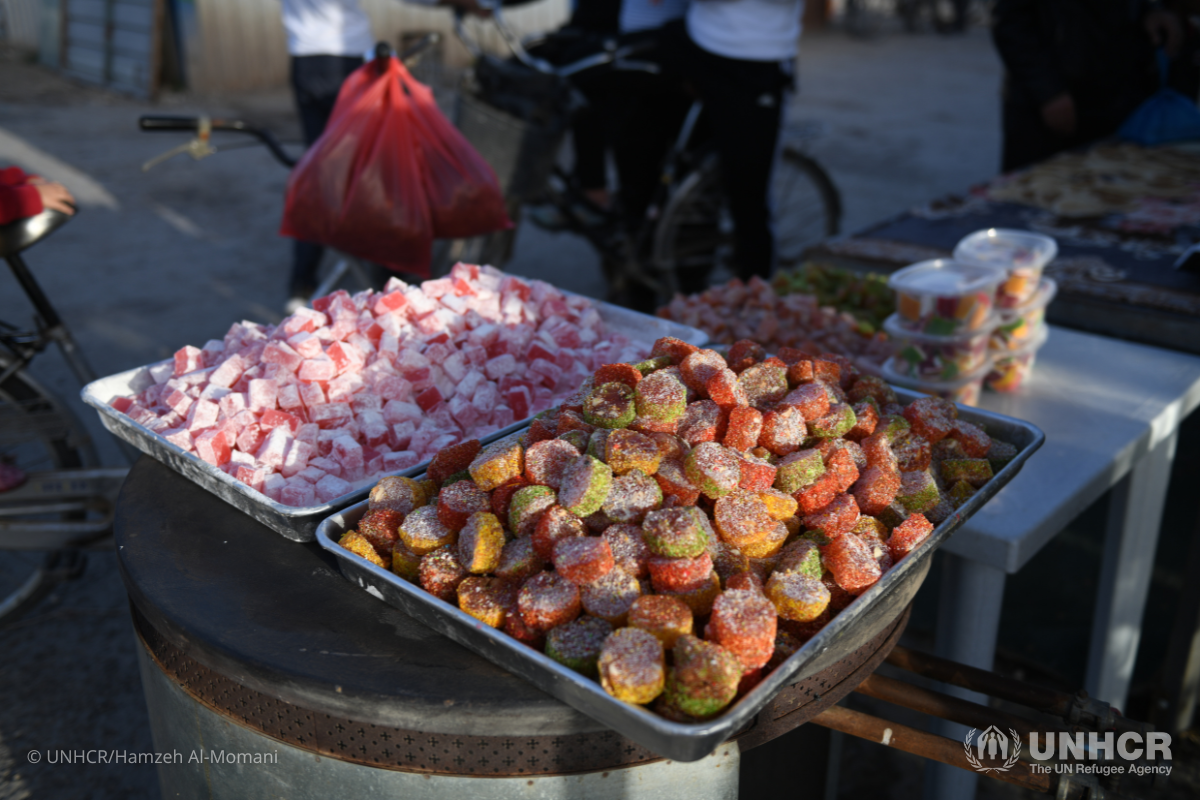
What is Zakat and why do Muslims give during Ramadan?
Muslims are reminded to be generous and increase their charitable activities during Ramadan. The rewards for giving in Ramadan are believed to be multiplied many times over. Giving can take several forms including hosting Iftars for the poor, donating clothes to people in need and helping in the community.
One type of charitable giving is Zakat, or obligatory giving for those who are financially able.
Zakat requires Muslims to give at least 2.5% of their assets to the poor and hungry and it is an integral part of the Muslim faith and, like fasting, is one of the five pillars of Islam.
Are refugees celebrating Ramadan?
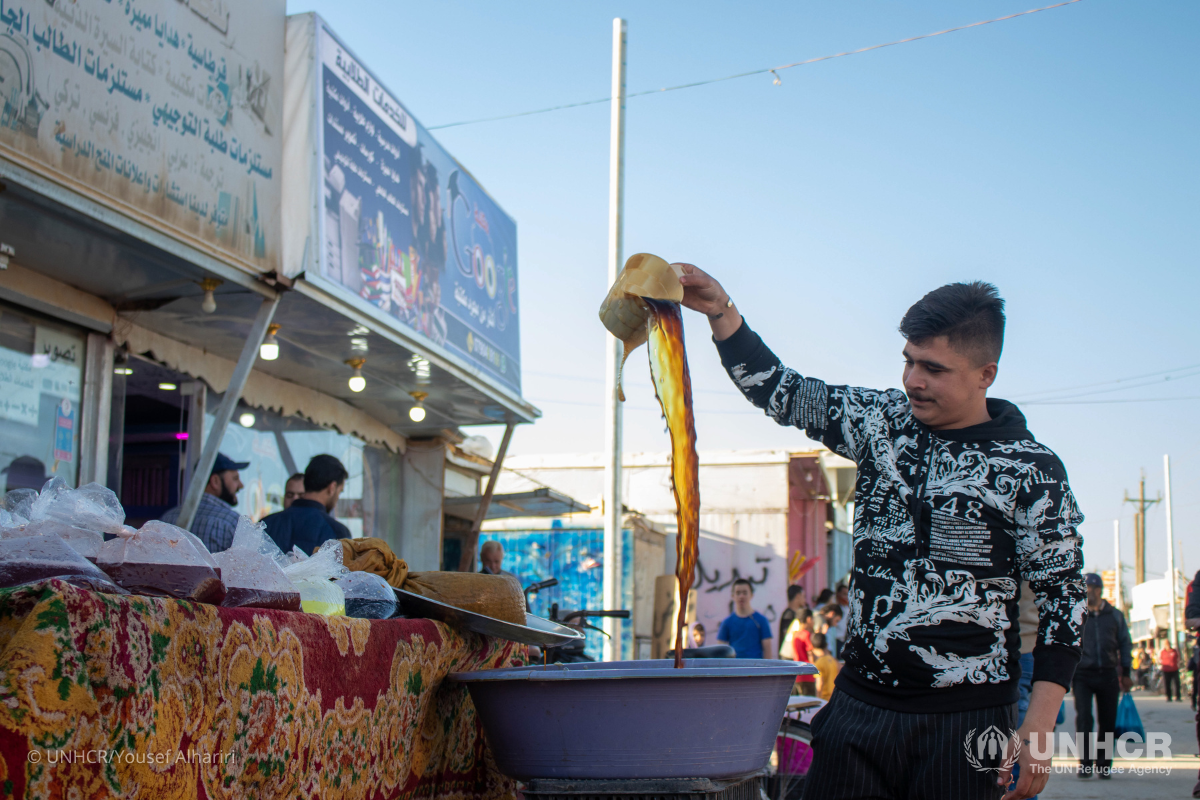
Many refugee and displaced families will observe the holy month separated from those they love and their communities, far from their homes. While Ramadan is a time for celebration, for refugees, it is bittersweet as it is a reminder of a life that was lost.
“Ramadan is a month of giving and good deeds,” says Ibrahim, a Syrian refugee now living in Lebanon with his children. “Refugees who live in such difficult situations are eligible for Zakat, for help. They deserve support.”
Nearly 60 percent of all refugees and forcibly displaced people globally are from Muslim-majority countries – millions will be celebrating the holy month while facing poverty, hardship and uncertainty.
Help protect refugees during Ramadan...
During this holy month of Ramadan, USA for UNHCR has launched a special campaign to help refugee families. Refugees across the globe are celebrating Ramadan far from home and unsure of what the future brings — but you can help them.
You can give them hope by starting your monthly donation to USA for UNHCR, the UN Refugee Agency. Together, we can give hope to refugees in places like Syria, Bangladesh and Yemen every day of the year. Please, donate to USA for UNHCR today.


